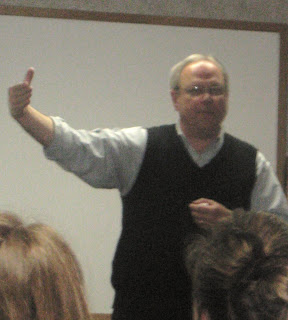
Jimmy Manno used Resource Ownership, a technique pioneered by Griffin-Hammis Associates, to create his job. A previous blog entry, Jimmy and the forklift, discussed the details of the Resource Ownership relationship with Bob and Robin Sharp, owners of Grafton Farm & Home Supply.
Job Squad has been receiving training and technical assistance for the last 2 years from Griffin-Hammis, Associates (GHA), through a grant provided by the West Virginia Developmental Disabilities Council (WVDDC). We used the knowledge and skills gained through our relationship with GHA and the WVDDC to facilitate Jimmy's job creation.
In order to financially qualify for the Medicaid Waiver, Jimmy needed to spend funds related to a life insurance policy in his name. He used these funds to negotiate paid employment by purchasing a fork lift, which saved the owners thousands of dollars in operating costs.
Jimmy has been hired as an employee for over a year now; he states that he loves working with the owners and his co-workers at the store. Bob commented that it is a good fit for Jimmy, his personality and job skills have been an asset. He takes pride in his accomplishments and he enjoys working with public.
Jimmy's daily routine consist of getting up early going to exercise at the local gym, and then off to work. He enjoys cleaning the floors, rolling the oats and assisting the customers with their purchases. Jimmy gets very excited when talking about his job, and he loves being able to see his friends and neighbors. When asked if he would like to do anything different he responded "no, this is my job."
Jimmy's father is very pleased with Jimmy's overall success! He commented not only on the advantage of resource ownership considering a small business's needs, but also on the huge avantage it has been for his son."Jimmy has had fewer seizures, and appears to be much happier. This experience can be compared to that of a perfect marriage, everyone wins."



























